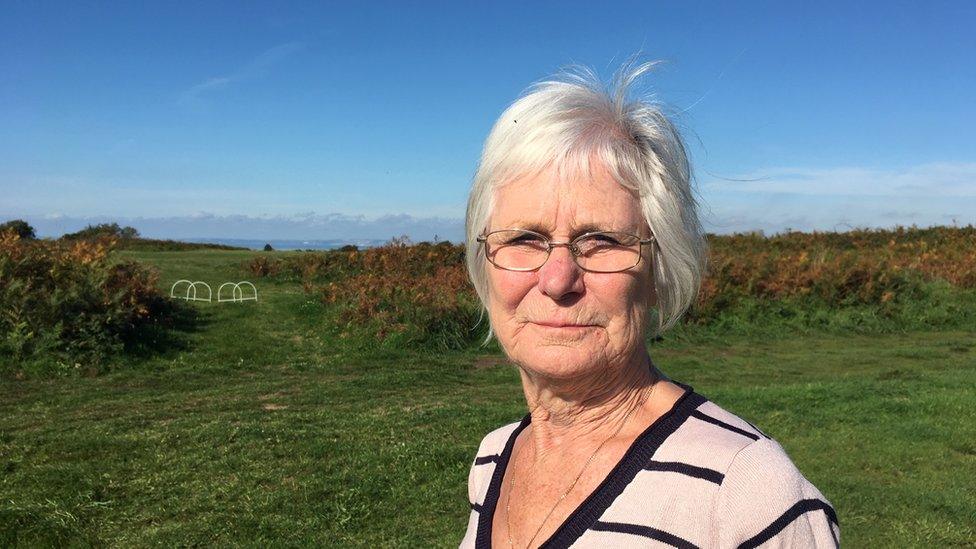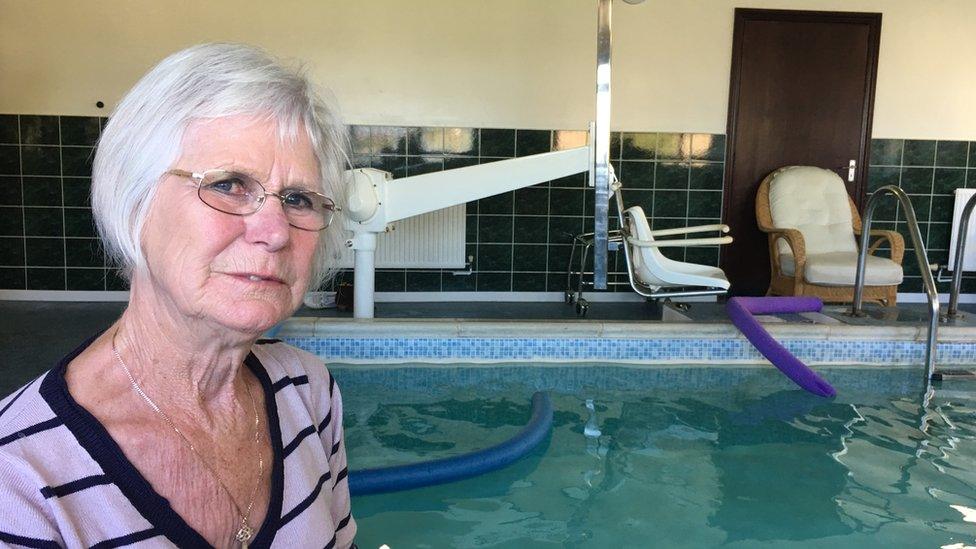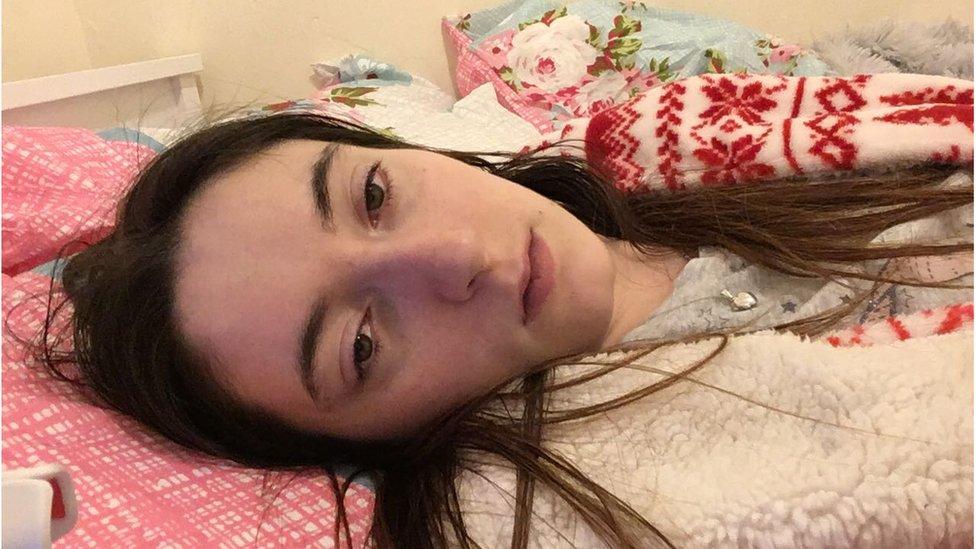ME and chronic fatigue: 'Some doctors don't believe you're sick'
- Published
Millie Earp: "You grieve for your past life"
A 22-year-old who suffers from ME says some doctors do not believe the disease exists and patients struggle to get the care and support they need.
Millie Earp said she was initially dismissed by her family GP and was only diagnosed "by the luck of the draw" five months after she fell ill aged 17.
The situation for patients in Wales has been described as "scandalous" by the ME Association.
The Welsh Government said health boards were responsible for their patients.
What is ME?
Myalgic encephalomyelitis (ME) or Chronic Fatigue Syndrome (CFS) is usually triggered by a viral infection which leads to muscle fatigue, pain and neurological symptoms such as short term memory loss.
About 13,000 people in Wales are thought to suffer from ME, and 70% of those are women.
Ms Earp, from Cardiff, described her experience with her doctor as "terrible" and put her failing health down to "exam stress" as she prepared to take her A-Levels five years ago.
"I was really lucky compared to most people," she said.
"I became ill after a couple of viruses and never really recovered. My family GP didn't believe anything was actually wrong and told me to do more exercise and that would sort it all out."
It took Ms Earp five months to get diagnosed, but there was no support available to her in Wales.
Anne Kavanagh, from Bridgend, a former head of special needs at a comprehensive school, started showing symptoms for the condition 10 years ago.
"I was an exceedingly energectic person," she told BBC Eye on Wales. "My job was very exacting but I loved it.
"I was a dog trainer, travelled all over the country. My life was good."
After contracting a virus which gave her no symptoms other than a temperature, Ms Kavanagh was repeatedly signed off work with post viral fatigue as she struggled to get out of bed and return to work.
She says she felt "hopeless" because of the condition and her weight dropped to less than six stone, but added she was "worried whether people would believe I was genuinely ill".

Anne Kavanagh was diagnosed with post-viral fatigue in 2008
Charles Shepherd, medical adviser to the ME Association, said: "My experience from contact with patients in Wales is that many GPs are still very unsure and uncertain about how to diagnose this illness. They are equally uncertain about how to manage this illness.
"There are five adult services in Wales but none of them are multidisciplinary physician led which is what these services should be. Overall the situation in Wales is scandalous."
Jan Russell, of Welsh Association of ME & CFS Support (WAMES), added the lack of diagnosis and help for patients is "a health and social care crisis, even a humanitarian crisis".
But Owen Hughes, who chairs a group to improve ME services, said progress had been made, despite issues.
"Progress has been slow. There are some very good services in Wales and it's a shame that not everyone has those services on their doorstep," he said.
The Welsh Government said: "Health boards in Wales are responsible for the healthcare needs of their population."

Ms Kavanagh uses pool equipment to help deal with ME
After having no choice but to resign from her job as a teacher two years after falling ill, Ms Kavanagh underwent an assessment for Employment Support Allowance (ESA), but said she was told she was not eligible, an experience she describes as "humiliating".
"They didn't ask the appropriate questions. There was no relation to what I was feeling," she added.
"I'd have had better luck if I'd had a bad back."
Eventually, Ms Kavanagh was diagnosed with Chronic Fatigue Syndrome on the NHS and was offered some support early in the morning, but she had no way of getting to the centre to undergo rehabilitation exercises.
She found a place to start her recovery at the Sandville self-help centre in Porthcawl, where she was able to visit three times a week to learn relaxation techniques.
"They just said 'come when you're ready'," she said.
"I wouldn't be where I am now without Sandville. It took about five years for them to see the outgoing, happy person that I was."
For details of organisations offering help and support with ME/CFS visit bbc.co.uk/actionline
Eye on Wales is on BBC Radio Wales at 18:30 BST on Wednesday.
- Published8 May 2018

- Published22 March 2018

- Published21 September 2017

- Published26 January 2016
